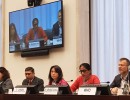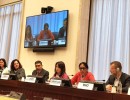Opening Remarks by Her Excellency Himalee Arunatilaka, Ambassador & Permanent Representative of Sri Lanka to the United Nations in Geneva at the Conference ‘United and Present: Global Solutions from Within - A Mindful Approach to Diplomacy, UN Work, and Beyond’ 09 December 2025, Geneva
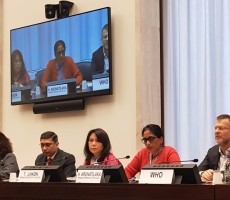
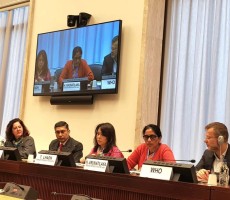
High Commissioner Volker Turk
Excellencies
Ladies and Gentlemen,
Sri Lanka is proud to have been be a key sponsor of the resolution on World Meditation Day together with Liechtenstein, Andorra, Mexico, Nepal, and India, that was adopted by the UNGA in 2024.

Mr. President,
Sri Lanka participated in discussions on this resolution in a spirit of open and constructive engagement, that we have demonstrated throughout in our interactions with this Council.




Minister of Justice and National Integration, Harshana Nanayakkara led the Sri Lanka delegation to the presentation of Sri Lanka’s initial Report under the International Convention for the Protection of All Persons from Enforced Disappearance at the 29thSession of the UN Committee on Enforced Disappearances (CED) on 26 September 2025, in Geneva.

Mr. Chairman,
Distinguished Members of the Committee,
- It is my honour to lead the Sri Lanka delegation to this dialogue with the Committee on Enforced Disappearance and to present Sri Lanka’s Initial Report under Article 29 of the International Convention for the Protection of All Persons from Enforced Disappearance.
- My delegation, both present here and joining virtually from Colombo, includes members from the
Ministry of Justice and National Integration, Ministry of Foreign Affairs, Foreign Employment and Tourism, the Ministry of Defence, Ministry of Public Security and Parliamentary Affairs, Ministry of Women and Child Affairs, the Attorney General’s Department, Sri Lanka Police, the Department of Probation and Child Care Services, National Child Protection Authority, the Office on Missing Persons, the Office for Reparations, the Office for National Unity and Reconciliation, and the Permanent Mission of Sri Lanka to the UN in Geneva.
The United Nations Committee on Enforced Disappearances (CED) during its 29th session will review Sri Lanka’s first periodic report on 26 September 2025 in Geneva.
Sri Lanka’s Delegation to the Review will be led by the Hon. Minister of Justice and National Integration, Harshana Nanayakkara, M.P. and will consist of senior officials from the Ministry of Justice and National Integration, Attorney-General’s Department, Ministry of Defence, Ministry of Women and Child Affairs, Ministry of Foreign Affairs, Foreign Employment and Tourism, Department of Police, Office on Missing Persons (OMP), Office for Reparations (OR), Office for National Unity and Reconciliation (ONUR), and the Permanent Mission of Sri Lanka to the UN in Geneva.
The Review will take the form of an hybrid interactive dialogue between the GoSL delegation and the CED Committee.
Sri Lanka signed the International Convention for the Protection of All Persons from Enforced Disappearance (ICPPED) on 10 December 2015 and ratified the Convention on 25 May 2016. On 23 August 2023, Sri Lanka submitted its initial report under the Convention, outlining the measures taken to implement its obligations under the Convention. The forthcoming review will involve the consideration of Sri Lanka’s initial report by the Committee on Enforced Disappearances (CED).
In addition to Sri Lanka, Montenegro and Benin will also be reviewed by the Committee during its 29thsession to be held from 22 September to 2 October 2025.
Ministry of Foreign Affairs, Foreign Employment & Tourism
Colombo
26 September 2025
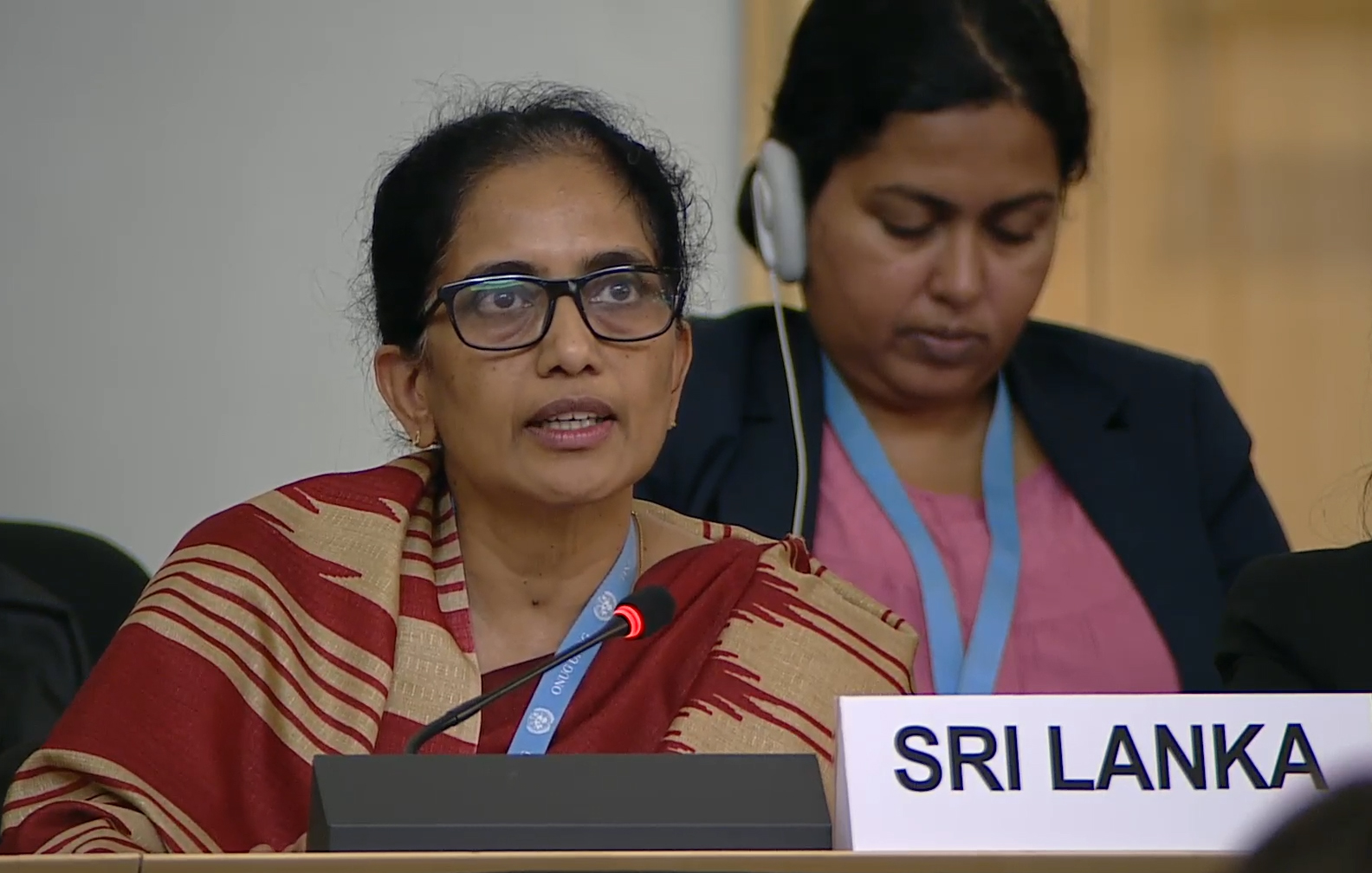
Mr. President,
Sri Lanka welcomes the convening of the Urgent Debate by the Human Rights Council at its 60th Session to discuss the unprovoked attacks against Qatar on 9th September, at the request of OIC and GCC countries.
Mr. President,
Sri Lanka condemns the recent attacks on Qatar, which risk further escalating volatility and undermining regional security. Sri Lanka strongly emphasizes the need to exercise restraint and the importance of employing dialogue and diplomacy rather than military aggression over sovereign countries, while upholding the universally accepted international norms and laws.
The Human Rights Council has a special duty to address the devastating impact of continuing violence and hostility on the people in the Middle East region, especially the dire humanitarian situation in the Occupied Palestinian Territories.
In this context, Sri Lanka calls on the Council to avoid double standards in its approach and the treatment of situations of human rights violations and ensure that the rights of all are promoted and protected equally regardless of geography and other considerations.
Thank you
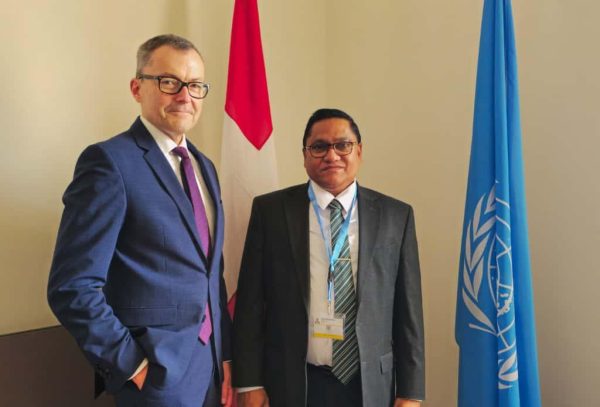
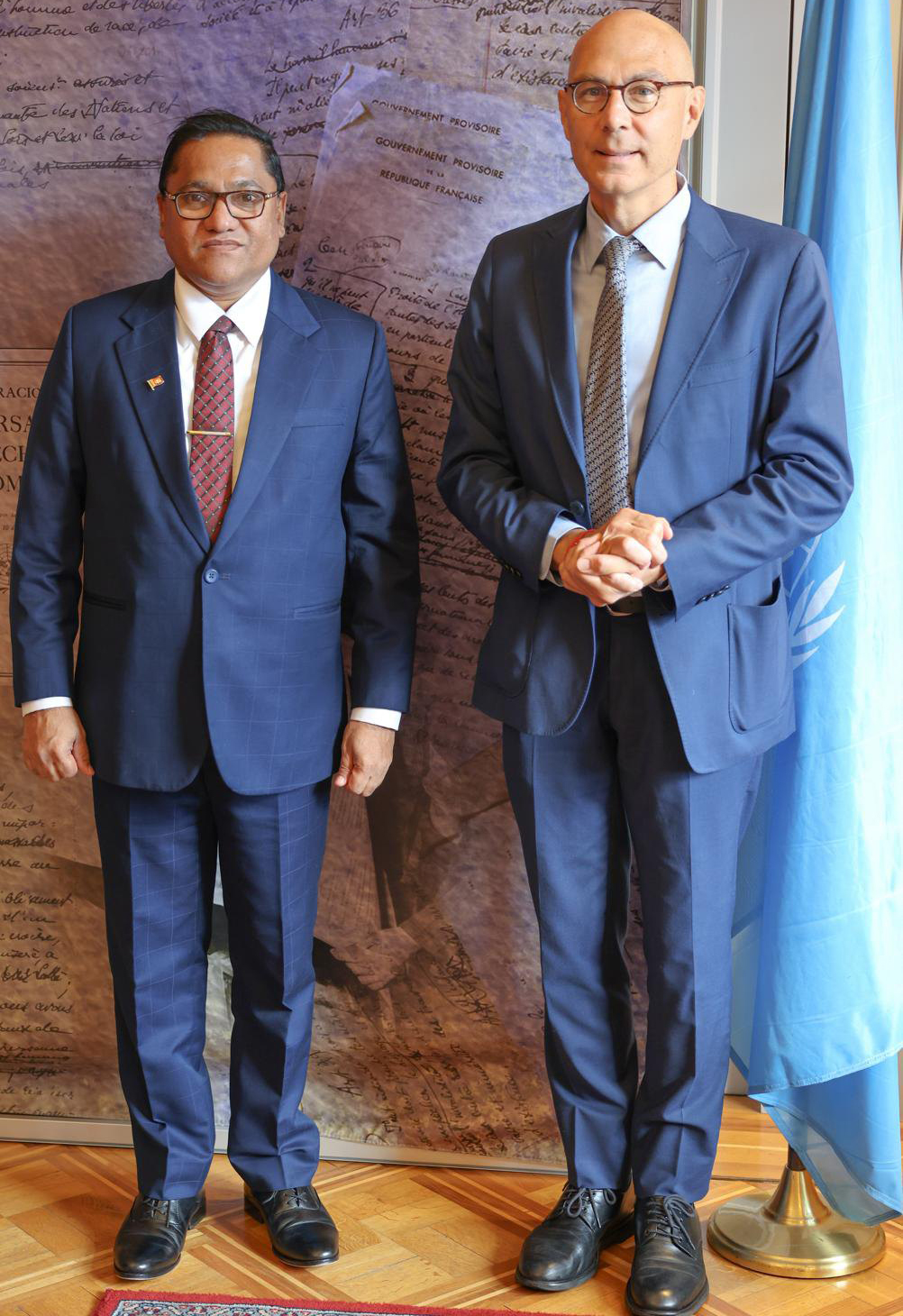
Minister of Foreign Affairs, Foreign Employment and Tourism, Vijitha Herath concluded his visit to Geneva where he addressed the 60th Session of the United Nations Human Rights Council (UNHRC) on September 8, 2025, delivering the Government statement during the Interactive Dialogue on Sri Lanka.
Minister Herath reiterated Sri Lanka’s commitment to achieving reconciliation through domestic processes and outlining the measures already taken by the Government for transformation to advance the rights and well-being of all Sri Lankans.
The Foreign Minister further reaffirmed Sri Lanka’s opposition to externally imposed mechanisms.
- Sri Lanka reaffirms commitment to achieving reconciliation through domestic mechanisms at the 60th UN Human Rights Council
- GoSL Statement by Hon. Vijitha Herath, Minister of Foreign Affairs, Foreign Employment and Tourism delivered during the Interactive Dialogue on the Human Rights Situation on Sri Lanka (60th Session of the Human Rights Council) - 8th September 2025
- UN High Commissioner for Human Rights Volker Türk concludes official visit to Sri Lanka



